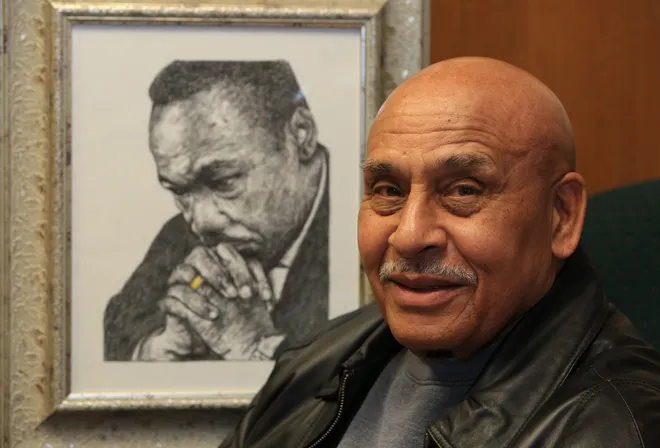Featured Image Description: Darrell Pope, former leader of the Hutchinson chapter of the NAACP, has partnered with Hutch in Harmony on civil rights initiatives aimed at promoting community equity and justice. (Photograph by Sandra J. Milburn/Hutchinson News)
How many of my friends and kids with similar stories to mine fall through the cracks? I mean, that keeps me up at night. It puts this fire in my belly to try to address the systems that we live in. – David Sotelo, Hutchinson County resident
When community members refuse to accept injustice, change becomes possible. In this episode we hear from Hutch in Harmony, a grassroots organization in Hutchinson, Kansas, that has fought to revive local civil rights protections after years of neglect.
Following the white supremacist rally in Charlottesville, Miriam Khan-Kitson and Rebecca Yoder-Shetler founded Hutchinson Harmony to push back against racism and discrimination in their town. They joined forces with longtime NAACP leader, Darrell Pope, and other advocates to demand accountability from City Hall, calling for the restoration of Hutchinson’s Human Relations Commission—a civil rights office left unfilled for over a decade. Their persistence led to the reinstatement of a Human Relations Officer, now led by former immigrant rights advocate Dave Sotelo.
Despite setbacks, Hutchinson’s advocates continue their fight to protect marginalized communities and challenge systemic racism in employment, housing, and policing. Their story is one of persistence, hope, and the power of collective action.
This podcast series serves as a final grant report for Convergence Partnership’s most recent grantee cohort. Through the voices of our grantees and their partners, we explore how civic narrative, mutual aid, and economic power shape the fight for racial justice and health equity.
